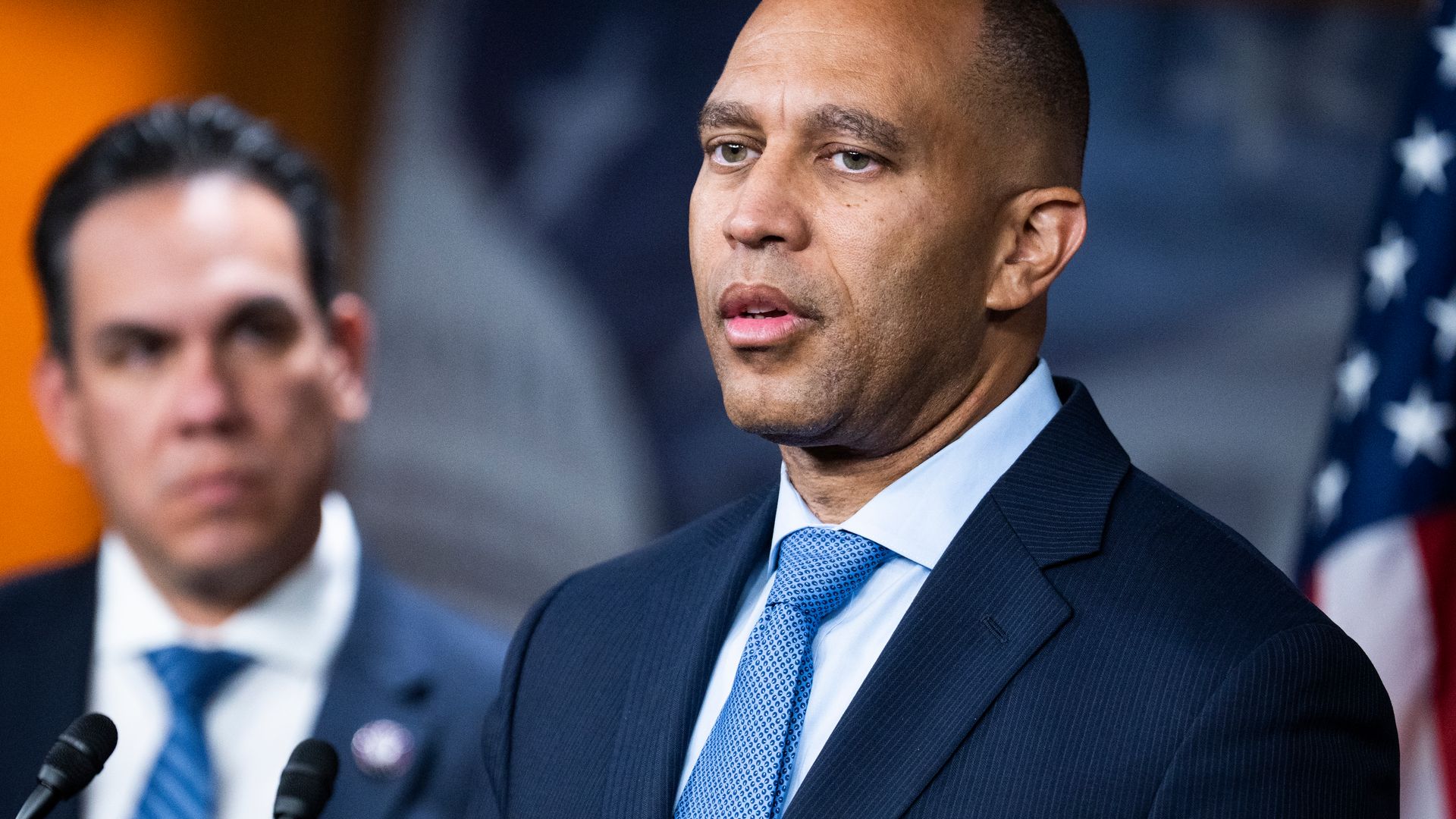
[RAY BOGAN]
The top Democrat in the House of Representatives said there are more than 300 bipartisan votes in the House to pass the $95 billion dollar foreign aid package the Senate approved Tuesday. Minority Leader Hakeem Jeffries, D-N.Y., is calling on House Speaker Mike Johnson, R-La., to bring it up for a vote.
[JEFFRIES]
“More than 300 bipartisan votes. It’s not too much to ask in America’s national security, that we get an up or down vote and let the House of Representatives actually work its will,” Jeffries told reporters.
[RAY BOGAN]
Speaker Johnson said he opposes the bill because it does not contain any border security provisions and therefore he won’t bring it up for a vote.
[JOHNSON]
“The Republican led house will not be jammed or forced into passing a foreign aid bill that was opposed by most Republican senators and does nothing to secure our own border,” Johnson said.
[RAY BOGAN]
But Leader Jeffries said “all options are on the table” to get this bill approved and that he will “utilize every legislative tool available.” There are multiple options to go around Speaker Johnson and force a vote on the bill.
One is a discharge petition. That requires a majority of members, currently 217, to sign a petition that is filed with the House clerk and ultimately brings the bill up for a vote on the floor.
Discharge petitions are time consuming and require at least a seven day waiting period before a vote which are only allowed on certain days of the week.
Another difficult option is a PQ, or “ordering of the previous question”. It requires a majority vote and if successful, Democrats would control the House Floor for one hour of debate on the legislative item that was offered in the PQ.
We don’t have a timeline for when Democrats will try either of these, but we do know they’ll need the help of a group of Republicans to do it.
[CROW]
“This effort to pass a national security bill is not charity. This bill and this effort is directly, directly aligned in support of US national security interests and the American people,” Rep. Jason Crow, D-Colo., said.
[RAY BOGAN]
Speaker Johnson, his leadership team and those opposed to the foreign aid package are going to do everything they can to stop these maneuvers and are working on ideas of their own.
[GOOD]
“What Speaker Johnson should do is one of two things. Either send back an Israel support bill paid for by cutting UNRWA, UN funding, climate credits, IRS expansion, the Commerce slush fund, there’s lots of low hanging fruit, combined with border security,” Rep. Bob Good, R-Va., said. “And then we ought to add border security to the spending battles ahead.”
[RAY BOGAN]
But the Republican’s border bill, H.R. 2, has failed to get any support from Democrats, so it’s not going to become law as is. The same can be said for their idea to cut funding from current programs to offset the new spending. They tried that with a previous aid package for Israel and it didn’t go anywhere.











